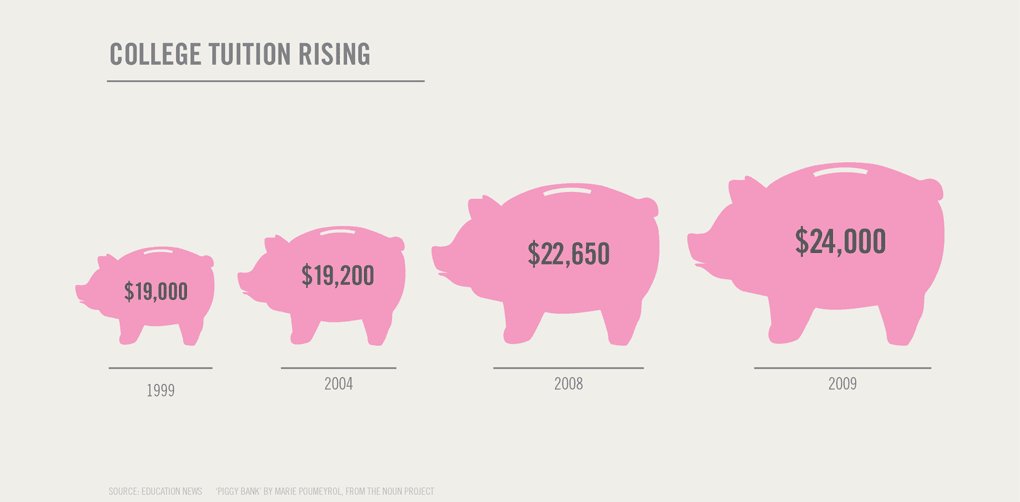In our work with clients in the higher education field, almost all of the college and university officials with whom we meet describe the perception goal they have for their institution the same way. They all want to be seen as “prestigious.”
This is a curious point. Is “prestige” what parents really want from their children’s college education? Where does “prestige” rank on students’ own list of priorities when choosing a school? And what does “prestige” even mean anymore in a world where the level of success achieved by an entrepreneurial Ivy League dropout can eclipse that of any Ivy League graduate (cue Gates and Zuckerberg)?

The cost of a college degree is rising at a dramatic rate, yet the value of that same degree is decreasing as the number of degree holders continues to rise, flooding a job market that’s still not fully recovered from recession.

How can your school compete while justifying the cost of a degree even as the ROI argument is weakening? By competing on the vague idea of “prestige”?
Students and parents view “prestige” differently. For a parent, “prestige” may represent future employment opportunities for their child, or bragging rights among their peers (that their kid is on what they think is “the right track”). For students, “prestige” may represent some static, staid, and outdated idea of attainment held by their parents or grandparents that they don’t necessarily agree with anymore.
Chances are your school has something better to say than picking up this over-applied and potentially counteracting term. Not saying it could be stunting your yield rates.
Once you have a strong message, the burden shifts to finding the most appropriate ways to deliver your it in order to break through the white noise buzzing around students and parents as together they make their decisions about college. A lot of the organizations we work with struggle on this front, and for good reason. It’s hard!
For colleges and universities — like other organizations — cutting through the market noise starts with knowing your target audience. Not just an outdated persona based on demographics, but a real, clear understanding of their behaviors and motivations to a degree that almost makes you seem psychic. What makes them tick? How are they making decisions? How are the decision-making processes different for parents and students? What will tomorrow’s students be searching for in a higher education experience?
It’s up to you to reshape your school’s message and deliver it in a compelling, authentic way, but we can help. Competing on the outdated ideal of “prestige” is dead.
